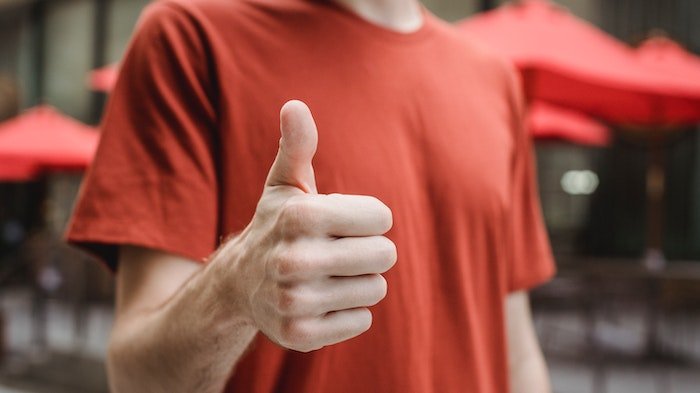- Home
- Types of Addiction
- Cocaine Addiction Help & Treatment
Cocaine Addiction Help & Treatment
Cocaine is a powerful stimulant drug derived from the South American coca plant.
It is a fine white powder that closely resembles talcum powder or baking soda and is commonly mixed with other substances so that dealers get a higher return on their product.
The unregulated nature of cocaine means that there is no way to know what it is mixed with or how you will react to the other substances until it is too late.
How Does Cocaine Cause an Addiction?

When someone uses cocaine, the drug sends signals to the brain to release dopamine – also known as ‘the feel-good hormone’ – but instead of being recycled back into the brain as is usually the case, cocaine prevents the reabsorption. This means that your brain is flooded with dopamine and you will feel an intense high.
You will then associate this euphoric feeling with cocaine, which in turn encourages more drug-taking. (1)
As well as this, the effect of cocaine only lasts for a short time – usually around 15 minutes. This means that users often tend to take several doses in one night, usually quite close together.
Over time, you will require a larger dose to feel the same effect. It is this cycle that causes addiction.
Cocaine Addiction Recovery
The thought of recovering from cocaine addiction can be overwhelming. If you have been using cocaine for a long time, you will become dependent on how it makes you feel and find it difficult to cope without it.
It is possible to overcome an addiction to cocaine by yourself, however; it is recommended to attend an inpatient drug and alcohol rehab facility to not only overcome the addiction but also to get to the root cause of your addiction and teach you some relapse prevention techniques.
Cocaine – while highly addictive – does not cause physical addiction. This means that withdrawing from cocaine will not cause any physical side effects and is certainly not life-threatening.
A cocaine withdrawal does not require a medically assisted detox. That being said, withdrawing from cocaine is not an easy or pleasant experience.
What are the Symptoms of Cocaine Withdrawal?

The symptoms of cocaine withdrawal can vary from person to person, and some people may experience more severe symptoms than others.
The most common withdrawal symptoms of cocaine addiction are:
- Anxiety
- Depression
- Concentration issues
- Paranoia
- Intense cravings for cocaine
- Increased appetite
- Fatigue
- Insomnia
- Mood swings
- Irritability
The Importance of Abstinence in Cocaine Recovery
Unfortunately, cocaine addiction has a particularly high relapse rate (2) which is why abstinence is recommended when you are in recovery.
Certain recovery programs aim to teach you self-control so that you are still able to partake in the activity without allowing it to become an addiction again. This method is most commonly used in the treatment of alcohol addiction and is not recommended in the treatment of cocaine addiction.
Not only is cocaine a highly addictive and dangerous substance, but it is also illegal and once you have overcome your addiction, it is advised to stay away from it entirely.
The high relapse rate is an important factor in why abstinence is the recommended course of action. You are less likely to relapse if you stay away from the substance instead of trying to limit your usage.
How do I Know if I Need Cocaine Addiction Help?
Addiction is often all-consuming, and if you are even a little concerned about your cocaine use, it is a good idea to talk to someone about it. While it is preferential to speak to a medical professional about this, it is a good step in the right direction to voice your concerns to someone you trust.
There are various signs that can show that you might have developed an addiction, and while these can vary from person to person, it is helpful to know what troubling signs to look out for if you are worried about your cocaine use.
Some common signs that you may have developed a cocaine addiction are:
- You need to take a higher dose to feel the same effect
- You routinely promise yourself that you will stop taking cocaine or cut down your usage, but never do
- You spend large amounts of time thinking about and acquiring cocaine
- You spend large amounts of money on cocaine
- You have lost interest in hobbies you once enjoyed
- You are secretive about your cocaine use or lie about how much you have taken
- You feel sick or agitated if you have not taken cocaine
- You know how damaging your habit is but you continue to take cocaine, anyway
- Recurrent sinus infections or other sinus issues
- Regular nosebleeds
- Loss of appetite or weight loss
- Raised body temperature
- Palpitations
How To Help Someone With a Cocaine Addiction
If you are worried that a loved one may have developed a cocaine addiction, the thought of confronting them about can be extremely scary. You don’t know how they will react and you don’t want to push them away or feel like you are judging them.
However, having the support of a loved one is a huge part of successful recovery with studies showing that people with family support often have a better recovery outcome than those that are doing it alone. (3)
The importance of close relationships in addiction recovery is also evidenced by the fact that most inpatient rehab clinics offer family counselling as part of their addiction recovery programmes.
Do Interventions Work?

If you feel like your loved one has developed an addiction and needs help, there are some things you can do to make approaching them to go more smoothly, such as:
- Understand addiction – when you understand how addiction affects the brain, you will be more understanding of their situation and know that addiction is a disease, not a choice.
- Know about treatment options – it is a good idea to research the treatment options available, including medication, therapy, and rehab.
- Pick a good time – do not approach someone about their addiction when they are high, instead, wait until they are sober and approachable.
- Don’t gather a mob – while it may seem like a good idea to gather everyone they know to approach them; this can often make them feel ganged up on and doesn’t always work the way it does in movies
- Consider hiring a professional interventionist – a CRAFT intervention (Community Relations and Family Training) shows you ways in which you might have inadvertently been enabling the addiction, for example, lending the person money. The professional interventionist will teach you how to overcome this and allow the person to deal with the negative consequences of their own actions. They will also teach you how to spot the right time to approach the person about further treatment, such as inpatient rehab.
Cocaine Addiction Treatment Options

Treatment for addiction is not a one size fits all solution, and therefore each addiction has to be treated individually. Cocaine addiction is no exception to this rule.
The main treatment options are inpatient rehab or outpatient rehab.
1. Inpatient rehab
Inpatient rehab involves checking in to a private rehab facility and staying there until your treatment is complete. This can last anywhere from one week to 3 months and is entirely dependent on the individual.
During your time in inpatient rehab, you will undergo a range of treatments including:
- Detoxing
- Cognitive Behavioural Therapy
- Individual Therapy
- Group Therapy
- Family Therapy
- Mindfulness
- Holistic Therapy
- Relapse prevention
2. Outpatient rehab
Outpatient rehab does not involve staying away from home, as your treatments will usually happen at a clinic or outpatient department.
While outpatient programs work for many people, it is important to understand that these programs are not anywhere near as intensive or successful as inpatient treatment programs.
3. Support groups
Support groups are available to anyone and usually happen in community centres or church halls. They are usually free to attend, although some may ask for a small donation to cover the cost of hiring the hall.
Many inpatient facilities offer support groups as part of their aftercare service, and while attending support groups alone may not be enough to fully treat your addiction, they can be extremely helpful.
A support group usually consists of people who have had the same or similar experiences as you, and they are a safe and non-judgmental space for you to talk about your addiction and get some support and advice.
Get Help Today

For further support, please contact Rehab Recovery today at 0800 088 66 86.
References
[1] National Institute on Drug Abuse – Cocaine Facts – https://nida.nih.gov/publications/drugfacts/cocaine
[2] National Library of Medicine – Factors in Sustained Recovery from Cocaine Dependence – https://www.ncbi.nlm.nih.gov/pmc/articles/PMC3696509/
[3] British Medical Journal – Family-focused practices in addictions: a scoping review protocol – https://bmjopen.bmj.com/content/8/1/e019433


